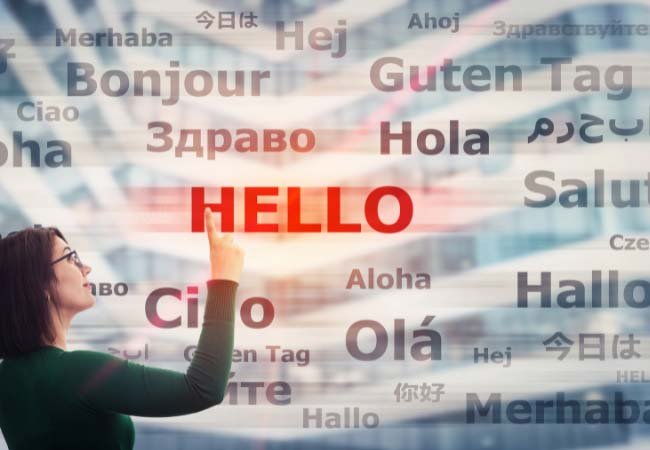Table of Contents
What Is The Best Way To Learn Different Languages?
How come some people can speak many languages fluently, while others aren’t able to absorb more than one? Here are the main points on which language learning skills differ.
- Intelligence. If you are very intelligent (I’m sure that all of my readers are), it will be easier for you to learn foreign languages. The more general knowledge you possess, the more creative you are and the better your memory is, the easier it will be for you to pick up other languages.
- Motivation. It’s not even worth talking about those who don’t want to learn other languages; they won’t make any progress regardless of how smart or linguistic gifted they are. If you are passionate about languages, if you are highly motivated to communicate with people who speak other languages, then all the techniques will work for you.
- Memory. People with a good memory usually have fewer problems learning new words and grammar rules. They may even remember them without having to make an effort! Unfortunately, I can’t say that this is my strong side.
- Intonation and accent. People with a good ear for accents and intonations usually have an easier time learning new languages, because they can better imitate the sounds of the new language.
- Practice. This one is pretty obvious – the more you practice, the better you’ll get. So, find a language partner or practice online with someone from a different country.
- Personality type. Believe it or not, some people are just better suited for learning languages than others. They are more open-minded and tolerant of different cultures and customs. These people are often called “language learners” by experts in the field of applied linguistics.
What Is The Fastest Way To Learn A Second Language?
A common belief is that birth in a country where your target language is spoken will give you the best opportunity to learn. But does it?
- There are so many kids who were born and raised in US or UK, yet they can barely speak English despite years of education.
- I know too many people who studied 4+ years at university and still can’t hold a conversation in their target language.
So, if it’s not geographical location or years of education, what is the fastest way to learn a second language?
There are a few methods that seem to work better than others:
- Immersion: completely surround yourself with the language. This can be done by living in a country where your target language is spoken, or by using immersion software or apps.
- Spaced Repetition: this involves learning new material, then forgetting it so you have to relearn it later. This helps you remember things better as your brain has time to process the information.
- Shadowing: this involves listening to of native speakers and repeating what they say. This helps you pick up pronunciation and intonation, which can be very difficult for adult learners.
- The Feynman Technique: basically, it is encouraging students to start with what they know (what they can do easily) and then move on to the next step (more difficult).
There are many methods of language learning but these seem to work better than others. So, how come some people don’t use them? Well…it’s not their fault. It’s our education system that prevents most people from trying out these, or any other new method that comes along!

How To Say ‘Hello’ In More Than 30 Languages
Hi is probably one of the best known words in all languages. If you’re traveling, it’s an easy word to learn, and you’ll be able to start conversations with people around the world! Here are some examples of how to say hi (or hello) in different languages:
- Arabic
Informal Greeting: Ahlan
Formal Greeting: Asalaam alaikum - Bulgarian
Informal Greeting: Zdrasti
Formal Greeting: Zdraveĭte - Chinese
Informal Greeting: Nǐ hǎo
Formal Greeting: Nǐn hǎo - Dutch
Informal Greeting: Hallo
Formal Greeting: Goede dag - English
Informal Greeting: Hey
Formal Greeting: Hello - French
Informal Greeting: Salut
Formal Greeting: Bonjour - Gaelic
Informal Greeting: Hug
Formal Greeting: Dia dhuit - German
Informal Greeting: Hallo
Formal Greeting: Guten tag - Greek
Informal Greeting: Yasou
Formal Greeting: Kalimera - Hebrew
Informal Greeting: Shalom
Formal Greeting: Shalom aleichem - Hindi
Informal Greeting: Hē
Formal Greeting: Namastē - Icelandic
Informal Greeting: Halló
Formal Greeting: Góðan dag - Indonesian
Informal Greeting: Salam!
Formal Greeting: Selamat siang - Italian
Informal Greeting: Ciao
Formal Greeting: Salve - Japanese
Informal Greeting: Yā, _Yō
Formal Greeting: Konnichiwa - Khmer
Informal Greeting: Suosdei
Formal Greeting: Suostei - Korean
Informal Greeting: Anyoung
Formal Greeting: Anyoung haseyo - Polish
Informal Greeting: Hej
Formal Greeting: Cześć - Portuguese
Informal Greeting: Oi
Formal Greeting: Olá - Romanian
Informal Greeting: Hei
Formal Greeting: Bună ziua - Russian
Informal Greeting: Privet
Formal Greeting: Zdravstvuyte - Spanish
Informal Greeting: ¿Qué tal?
Formal Greeting: Hola - Swahili
Informal Greeting: Hujambo
Formal Greeting: Habari - Swedish
Informal Greeting: Hej
Formal Greeting: God dag - Tahitian
Informal Greeting: Ia ora na
Formal Greeting: Ia ora na - Turkish
Informal Greeting: Selam
Formal Greeting: Merhaba - Vietnamese
Informal Greeting: Chào
Formal Greeting: Xin chào - Welsh
Informal Greeting: Helo
Formal Greeting: Shwmae - Zulu
Informal Greeting: Sawubona
Informal Greeting: Ngiyakwemukela

